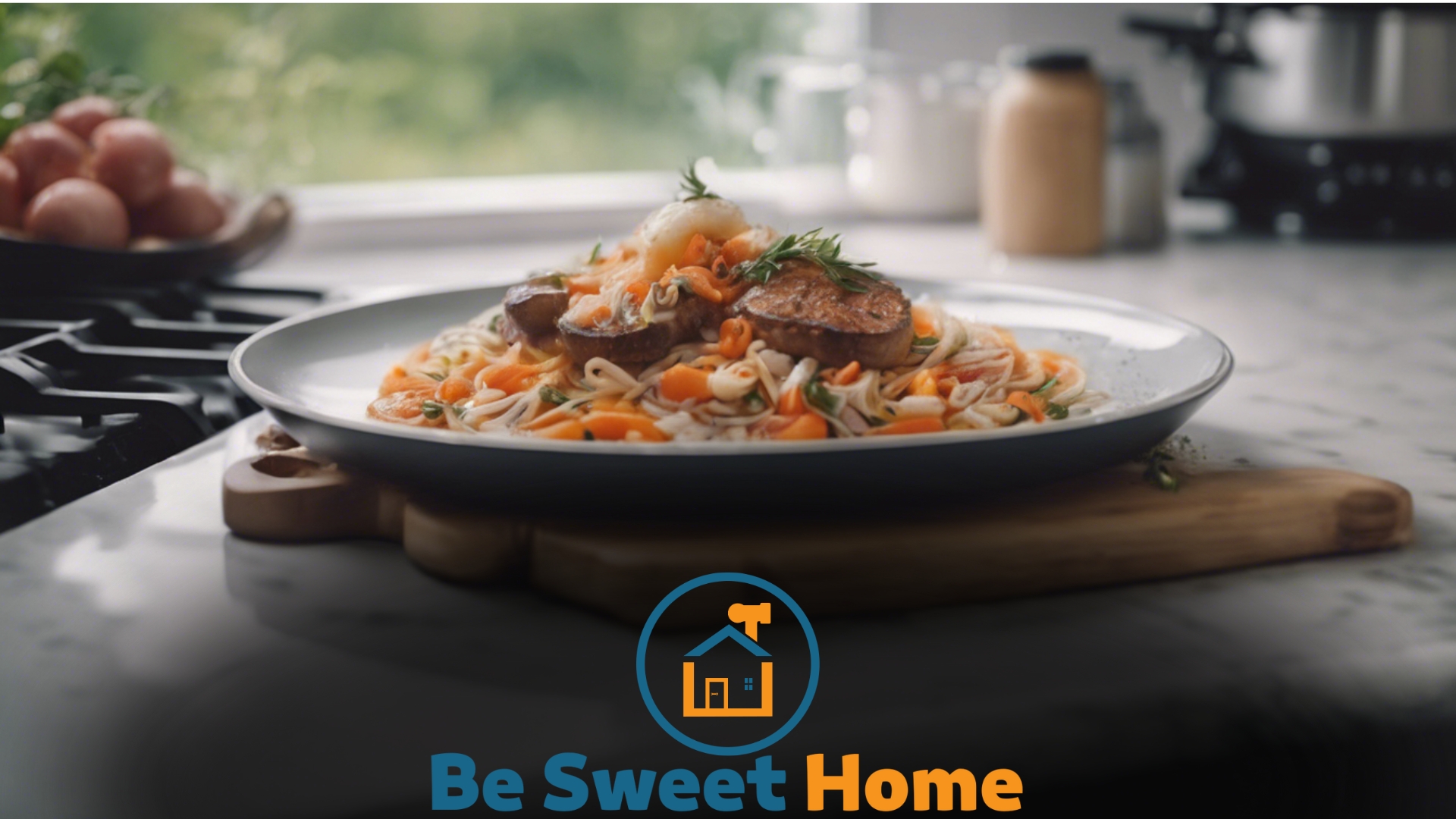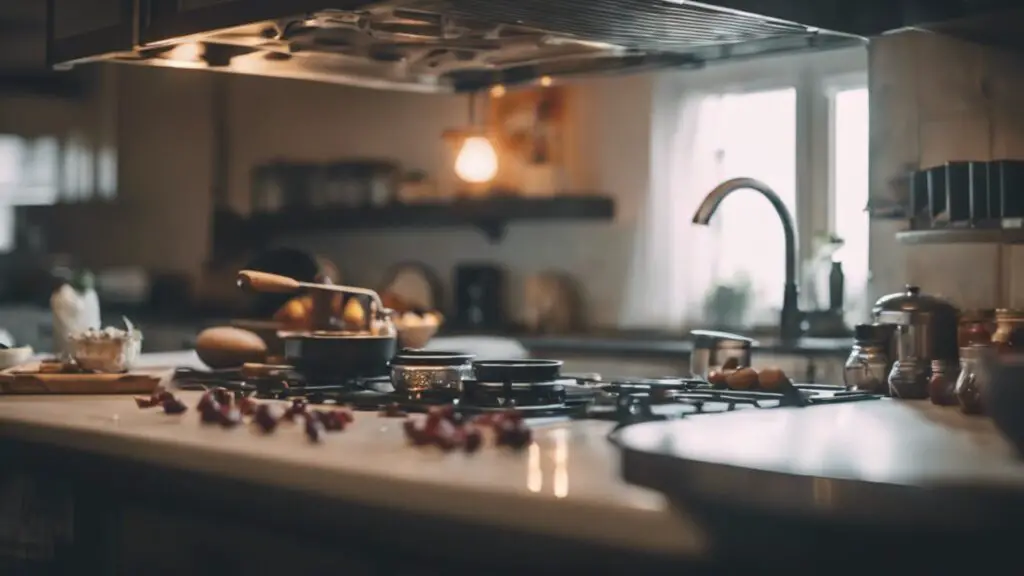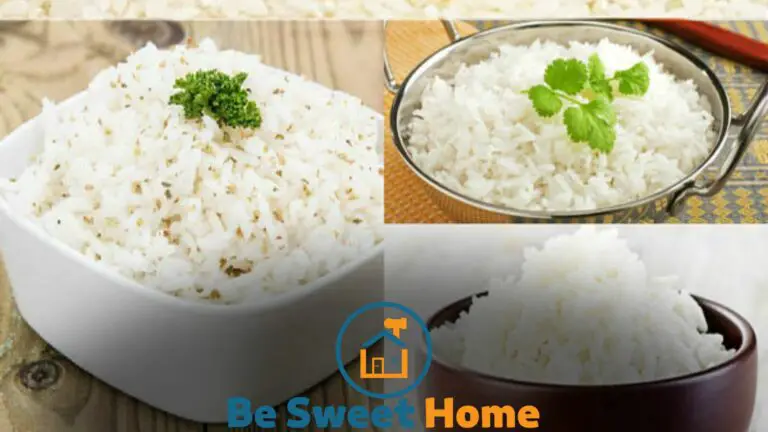

Improve your cooking by mastering basic techniques and experimenting with flavors. Stay organized and practice regularly to enhance your culinary skills.
Cooking, an art, and a science benefits immensely from a foundation of knowledge and practice.
Whether you’re a beginner aiming to find your way around the kitchen or an experienced home chef striving for perfection, there’s always room for improvement.
Embrace the culinary exploration journey by learning from various sources like cookbooks, online tutorials, and cooking classes.
Keep your pantry stocked with a diverse range of ingredients to encourage creativity. Understanding the importance of seasoning, heat control, and timing can transform your dishes.
Remember, the kitchen is a personal space for innovation and joy. Each meal allows you to refine your techniques, discover new recipes, and serve up delectable experiences that appeal to the palate and senses alike.
Elevating Your Kitchen Game


Want to become a master in the kitchen? Elevating your kitchen game brings joy and flavor to cooking.
With the right tools and quality ingredients, home cooks transform meals into extraordinary experiences.
Let’s start that journey with some essential upgrades!
Stocking Essential Tools
First things first, equip yourself with the must-haves. A well-stocked kitchen makes meal prep easier and more enjoyable.
Consider this checklist for your culinary toolkit:
- Sharp knives – A chef’s best friend for precision cutting.
- Reliable cookware – Mix of stainless steel, non-stick, and cast iron.
- Measuring cups & spoons – For precise ingredient portions.
- Mixing bowls – Various sizes for prepping and mixing.
- Wooden spoons & spatulas – Gentle on all cookware surfaces.
- Colander – For draining pasta and washing vegetables.
Investing in Quality Ingredients
The magic in cooking often comes from the quality of the ingredients used.
Elevate every dish with a few simple swaps:
| Standard Ingredient | Quality Upgrade |
|---|---|
| Table salt | Sea salt or Himalayan pink salt |
| Iodized salt | Kosher salt for seasoning |
| Pre-ground spices | Whole spices, ground fresh |
| Bottled garlic | Fresh garlic bulbs |
| Store-bought broth | Homemade stock |
Always taste as you go. Trust your senses to lead the way to delicious dishes. Fresh, high-quality ingredients elevate your cooking from good to great!
Mastering Fundamental Techniques
Every great chef knows that superior cooking starts with mastering the basics. Building a strong foundation in essential cooking techniques propels budding cooks toward culinary success.
Let’s explore the fundamental skills you need to enhance your cooking prowess one dish at a time.
Learning Proper Knife Skills
Sharp knives are the building blocks of a well-equipped kitchen. A good grip and the right movements turn slicing and dicing into an art form. Follow these steps:
- Hold the knife correctly: Grip the handle on the blade with your dominant hand, thumb, and forefinger.
- Chop with care: Use a rocking motion and keep the knife tip on the cutting board.
- Keep fingers safe: Tuck fingers away using the ‘claw grip’ to avoid cuts.
Practice makes perfect. Consistent use of these techniques will boost your knife skills quickly.
Understanding Heat Management
Controlling heat is crucial for delicious meals. Whether searing meat or simmering stews, knowing how to manage your stove’s temperature ensures perfectly cooked dishes. Here’s what you need to know:
| Cooking Method | Heat Level | Usage |
|---|---|---|
| Searing | High | For a caramelized crust on meats |
| Boiling | High | For pasta or vegetables |
| Simmering | Low to Medium | For sauces and stews |
| Sautéing | Medium | For quick-cooking veggies or proteins |
Remember, slow and steady wins the race. Gradual temperature changes prevent burning and allow flavors to develop fully.
Flavor Profiling and Spices
Every dish tells a story, a tale of culture, tradition, and the elements that make it unique, none more so than through its flavor profiling and spices.
Understanding these components is like holding the key to a treasure chest of sensory experiences. So, let us unlock the secrets to elevating your cooking by mastering the art of flavor profiling with the right balance and blend of spices.
Balancing the Five Tastes
Great cooking starts with balancing tastes. Each dish should have a sweet, sour, salty, bitter, and umami harmony. Think of these tastes as the notes in your culinary symphony. Here’s how to achieve that balance:
- Sweet: Counteract too much heat or bitterness with sugar or honey.
- Sour: Brighten your dishes with a squeeze of lemon or vinegar.
- Salty: Enhance flavors on the palate with the right amount of salt, but not too much!
- Bitter: Balance richness with bitter greens or a pinch of cocoa.
- Umami: Add depth with soy sauce, mushrooms, or ripe tomatoes.
Exploring Global Spice Blends
Diving into global spice blends is a culinary adventure. Each region of the world has its signature mix. Here are several to start your journey:
| Spice Blend | Origin | Ingredients |
|---|---|---|
| Garam Masala | India | Coriander, cumin, cardamom, cloves, black pepper, cinnamon |
| Za’atar | Middle East | Sesame seeds, sumac, thyme, oregano |
| Herbes de Provence | France | Rosemary, thyme, marjoram, basil, lavender |
| Chinese Five Spice | China | Star anise, cloves, Chinese cinnamon, Sichuan pepper, fennel seeds |
Start by exploring these blends, then create your own. Keep your pantry stocked with a variety of spices. Freshness matters, so buy in small quantities.
Recipe Experimentation and Adaptation
Embarking on a culinary journey often means stepping out of your comfort zone.
Recipe Experimentation and Adaptation can transform your home cooking from routine to outstanding.
You’ll expand your palate and skill set by trialing new techniques and flavor combinations.
Trying New Cuisines
Diving into new cuisines unlocks a world of flavors. Here’s how you can begin:
- Start with simple recipes from a different culture.
- Research regional spice mixes to capture authentic tastes.
- Visit local ethnic grocery stores for inspiration and ingredients.
Gaining an understanding of cultural cooking methods enriches your experience.
Modifying Classics
Reinventing classic dishes keeps them exciting. Consider these ideas:
- Swap out proteins in your favorite recipes for variety.
- Introduce unexpected veggies or grains to refresh staple meals.
- Play with seasoning levels or add fresh herbs for a flavor boost.
Small tweaks can lead to big delights at the dinner table.
Time Management in the Kitchen
Mastering time management in the kitchen can transform your cooking experience from stressful to serene.
When things are under control, you can enjoy the art of cooking rather than racing against the clock.
Let’s explore how to finesse your culinary routines with clever planning and smart technology.
Efficient Meal Prep
Starting with an organized approach saves time before the cooking begins. Here’s how:
- Create a meal plan for the week.
- Make a shopping list based on the plan.
- Pre-cut veggies and store them properly.
- Use clear labels on prepped ingredients.
- Group items needed for each meal together.
These steps enable a smoother cooking process, with everything at your fingertips.
Using Kitchen Gadgets Smartly
Gadgets can be golden for streamlining tasks. Here’s the right way to use them:
| Gadget | Use for | Time Saved |
|---|---|---|
| Food Processor | Chopping | 15 min |
| Slow Cooker | One-pot meals | 1 hour |
| Rice Cooker | Perfect rice | 30 min |
| Pressure Cooker | Cooking beans | 2 hours |
Using gadgets reduces active cooking time and frees you up for other tasks
Continuing Culinary Education
Imagine turning every meal into a masterpiece. Continual learning in the kitchen can transform good cooks into great chefs.
Sharpening skills and learning new techniques keep cooking creative and fun. It’s time to explore how continued education can elevate your culinary abilities.
Attending Workshops and Classes
Discover the secrets of cuisine by taking part in workshops and classes. Expert chefs share their knowledge, tips, and tricks.
Hands-on experience helps cooks try new things with confidence. See the list below for ideas to start:
- Local cooking schools
- Community college courses
- Specialized workshops (e.g., vegan, pastry, ethnic cuisines)
- Online cooking boot camps
Classes often lead to new friendships with fellow food enthusiasts. They build a community of cooks who inspire each other.
Following Culinary Influencers
Stay up-to-date with the latest culinary trends by following top food influencers.
These chefs and home cooks share their daily cooking routines, special recipes, and kitchen hacks online. You can learn a lot for free! Check out these platforms:
- YouTube cooking channels
- Food blogs
- Instagram food accounts
- Cooking podcasts
Follow your favorite food personalities and try their recipes at home. They often respond to comments, offering personal advice and encouragement.
Frequently Asked Questions
How Can You Improve Yourself in Cooking?
Practice regularly to improve skills. Study culinary techniques from cookbooks or online tutorials. Experiment with different ingredients and cuisines.
Seek feedback from family and friends to hone dishes. Stay organized and clean for efficient cooking.
What are the 5 Basic Cooking Skills?
The five basic cooking skills include knife handling, measuring and weighing, timing, understanding heat levels, and mastering basic cooking methods like sautéing and boiling.
What Makes Good Cooking?
Good cooking involves quality ingredients, proper techniques, balanced flavors, creativity, and passion.
Understanding recipe basics and adapting them with a personal touch is essential.
How Can You Develop Your Skill in Preparation and Cooking?
Develop cooking skills by practicing regularly, experimenting with new recipes, and revising techniques.
Watch culinary videos, take cooking classes, and seek feedback from those who taste your dishes.
Stay updated on culinary trends and continuously challenge yourself with complex recipes.
What are Essential Cooking Skills to Learn?
Basic knife skills, mastering temperature control, flavor balancing, meal planning, and proper seasoning are essential for improving cooking.
Conclusion
Embarking on a culinary journey promises an exciting adventure for your taste buds. Remember, experimenting with recipes and spices births new flavors.
Embrace each cooking session as an opportunity to refine your skills. Keep your kitchen brimming with creativity, and your meals will narrate a story of savor and zest.
Happy cooking!







